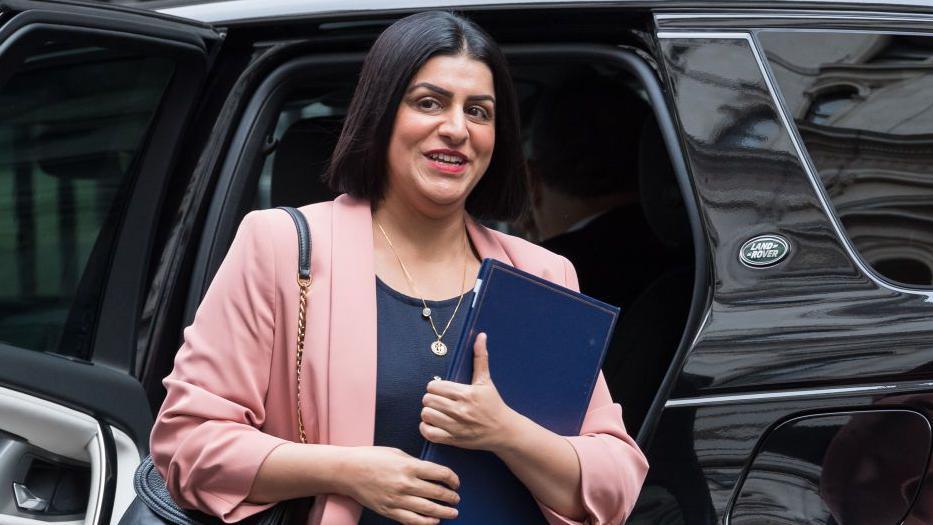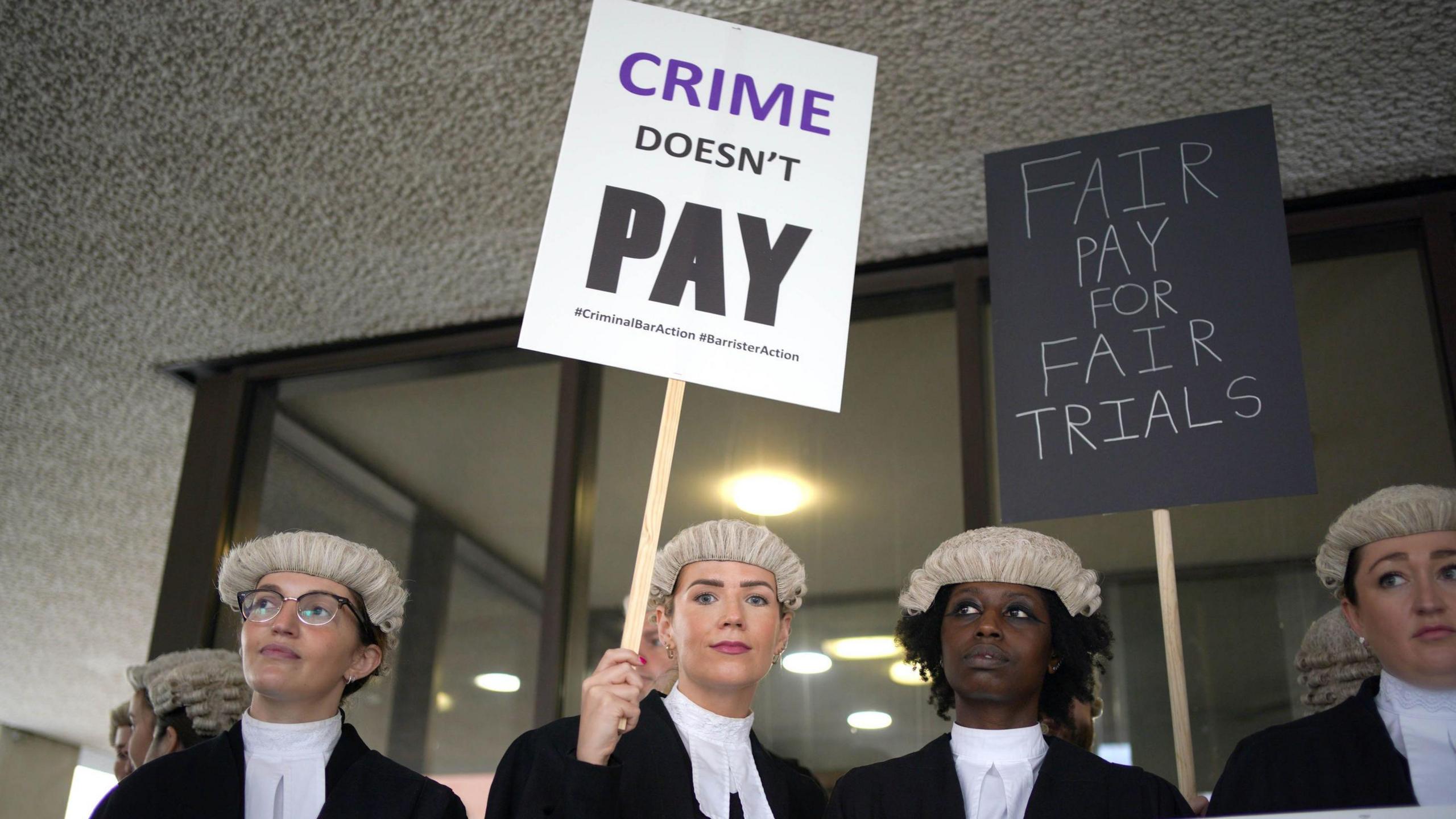Record court backlog as victims wait years for justice

Lord Chancellor and Secretary of State for Justice Shabana Mahmood
- Published
The backlog in courts handling the most serious crimes in England and Wales has reached an unprecedented high and is likely to rise further still.
Some 73,000 trials were unheard at the end of September, around twice the figure in 2019.
In some cases, victims reporting serious crimes such as rape won't see suspects tried for four years.
The figures come as ministers announce a major courts review which could lead to the end of jury trials for many crimes.
The Ministry of Justice (MoJ) figures reveal that the Crown Court backlog at the end of September was up 10% in a year.
While there are signs that judges and courts dealing with the most serious crimes have been able deal with cases more quickly, the backlog is growing because the police and prosecutors are charging more crimes than there is capacity to deal with.
A quarter of all trials listed in the three months to the end of September had to be pushed back. Delays can be caused by problems including too few prosecutors, defence lawyers, judges or available courtrooms.
Review to look at creation of intermediate courts
The review of the future of criminal courts, announced alongside the figures, will see Sir Brian Leveson, a former top judge, look at the case for creating "intermediate courts" between the magistrates and judges in Crown Courts.
In 2001, the then-Labour government was urged in a similar review to introduce a middle tier of courts which would deal with a range of offences that are too complex for community magistrates, but not so serious that they should involve an expensive jury trial.
One idea is that a jury could be replaced in many middle-ranking cases by a single district judge and two community magistrates.
The MoJ also said that Sir Brian would consider whether magistrates should have a broader remit to deal with more cases, potentially including increasing their sentencing powers.
Justice Secretary Shabana Mahmood said: "The scale of the Crown Court crisis inherited by this government is unprecedented. Despite the efforts of judges, lawyers and court staff, we simply cannot continue with the status quo.
"In many cases, victims are waiting years to see their perpetrator put before a judge, and we know for many victims, justice delayed is as good as justice denied.
"We owe it to victims to find bold, innovative approaches that will speed up justice, deliver safer streets and send a clear message to criminals that they will quickly face the consequences of their actions."
Sir Brian's report is expected to land on ministers' desks around the same time as a parallel review of sentencing of offenders.
If both reviews recommend major changes, and ministers accept those ideas, they would represent the most significant changes to the criminal justice system in a generation.
The Magistrates' Association has welcomed the review, saying that the 2001 proposals for an intermediate court had been "sensible ideas".
Mark Beattie, the association's chair, said: "Magistrates are highly trained, already deal with over 90 per cent of criminal cases and stand ready and willing to help in the recovery of the justice system, to ensure swifter justice for victims, witnesses and defendants."
But Mary Prior KC, chair of the Criminal Bar Association, which represents barristers who are central to Crown Court cases, said that the Leveson review - the second the judges has carried out in a decade - had to address how much cash was available for justice.
She said: "The announcement of yet another independent review of the justice system should include what that will cost from the limited justice budget and a clear understanding that it will not fix the current problems for the victims of crime, those accused of crime and the horrific delays in the Crown Court.
"Action and investment into the criminal courts system is needed now."
- Published4 December 2024

- Published19 November 2024

- Published24 May 2024
